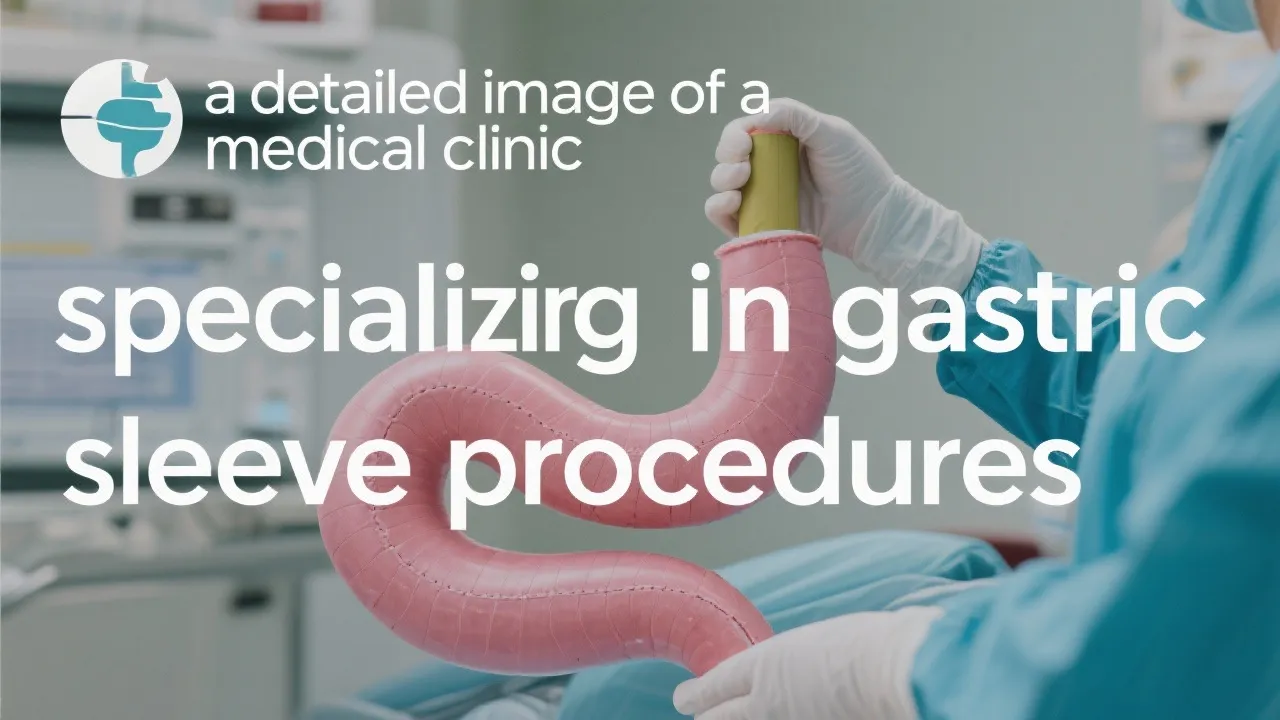This article provides a comprehensive exploration of gastric sleeve surgery, a popular weight loss procedure for individuals with obesity. Gastric sleeve surgery, also known as sleeve gastrectomy, involves the removal of a portion of the stomach, which results in a tube-like structure that restricts food intake and promotes weight loss. This procedure is considered effective for good weight management and health improvement.

Gastric sleeve surgery, medically termed as sleeve gastrectomy, is a surgical weight-loss procedure primarily aimed at individuals with severe obesity. This intervention involves the surgical removal of approximately 75-80% of the stomach, transforming the remaining section into a narrow tube or 'sleeve.' This alteration not only restricts the amount of food intake but also reduces hunger-inducing hormones, contributing to significant weight loss. The procedure has gained popularity due to its effective results, minimal invasiveness, and relatively shorter recovery times compared to more complex bariatric surgeries.
At its core, the gastric sleeve operation leads to weight reduction through two primary mechanisms: restriction and hormonal changes. Restriction is straightforward—it physically limits the volume of food the stomach can hold. Concurrently, the reduction in stomach cells lowers the levels of ghrelin, the hunger hormone, significantly curbing appetite. Ghrelin plays a crucial role in hunger regulation, and its decrease often leads to a natural reduction in food intake, helping patients adjust their eating habits more easily than they might without surgical intervention.
The transformation of the stomach into a sleeve allows for effective weight loss by fostering a sense of fullness after consuming a smaller portion of food. Additionally, patients often report enhanced satisfaction with smaller meals, making the process of weight loss feel more manageable. Other hormonal changes resulting from the surgery can also contribute positively to metabolic health, enhancing insulin sensitivity and reducing the risk of obesity-related diseases.
Gastric sleeve surgery is predominantly recommended for individuals with a Body Mass Index (BMI) of 40 or greater. However, those with a BMI of 35 may qualify if they suffer from obesity-related conditions such as type 2 diabetes, hypertension, or sleep apnea. The benefits extend beyond mere weight loss; patients often observe significant improvements in chronic health conditions, enhanced mobility, and increased life expectancy. For many, the surgery also offers psychological benefits, as significant weight loss can improve self-esteem, reduce anxiety, and lead to a more fulfilling social life.
Moreover, patients frequently report improved overall metabolic function, which can lead to better management of obesity-related conditions. The surgery can decrease the chances of developing additional weight-related health issues, promoting a healthier lifestyle post-operatively. Notably, many patients experience a reduction in medications required for managing diabetes and other obesity-related conditions following their procedure.
| Procedure | Description | Advantages | Downsides |
|---|---|---|---|
| Gastric Sleeve | Removal of a significant portion of the stomach. | Less invasive than bypass, significant weight loss, and fewer dietary restrictions compared to other procedures. | Irreversible, possible nutritional deficiencies that require lifelong supplementation. |
| Gastric Bypass | Creates a small pouch and reroutes intestines. | Significant weight loss, improvement in comorbidities, and can prevent absorption of calories. | More complex surgery, potential for malabsorption issues, and longer recovery time. |
| Adjustable Gastric Band | A silicone band placed around the upper stomach. | Reversible, adjustable, and a less invasive procedure. | Slower weight loss, potential band slippage, and less overall weight loss compared to sleeve gastrectomy. |
Though generally safe, gastric sleeve surgery carries potential risks typical of major surgeries, such as bleeding, infection, and adverse reactions to anesthesia. Additionally, good risks include long-term complications such as nutrient deficiencies, acid reflux, or hernias. The risk of complications can vary based on the patient’s overall health, the skill of the surgeon, and adherence to post-operative guidelines. It's vital for patients to remain vigilant and follow dietary and supplemental instructions carefully, as these are crucial in preventing deficiencies.
While the initial recovery phase is relatively straightforward, patients may encounter challenges as they adjust to their new eating patterns. Regular follow-ups with healthcare providers help in monitoring progress, ensuring that nutritional needs are met, and addressing any emerging complications early. Psychological support is also critical as patients navigate their transforming relationships with food and their bodies.
Gastric sleeve surgery remains a pivotal option for individuals who have struggled with obesity and its related challenges. By embracing this pathway, patients often revel in reclaimed health and improved quality of life. This significant weight loss not only aids in enhancing one’s physical appearance but also contributes to improved emotional wellness and a more active lifestyle. Understanding the commitment required post-surgery is essential in achieving lasting results.
However, it’s imperative to weigh this against potential risks and make informed decisions alongside healthcare professionals. A well-rounded approach including psychological support, dietary guidance, and regular medical check-ups is essential to ensuring long-term success and health maintenance post-surgery.
In conclusion, gastric sleeve surgery, when executed within professional medical settings, provides a transformative approach to tackling obesity. By understanding the intricacies involved, prospective patients can make informed decisions about pursuing this life-changing intervention. The journey may be challenging, but with the right support and information, patients can look forward to a healthier future.
Explore the Tranquil Bliss of Idyllic Rural Retreats

Ultimate Countdown: The 20 Very Legendary Gaming Consoles Ever!

Understanding Halpin and its Influence

Affordable Full Mouth Dental Implants Near You

Discovering Springdale Estates

Illinois Dentatrust: Comprehensive Overview

Embark on Effortless Adventures: Unveiling the Top in Adventures Made Easy Outdoor Equipment

Unveiling Ossur Valves: Innovation in Prosthetics

Unlock the Full Potential of Your RAM 1500: Master the Art of Efficient Towing!
